
A willingness to conduct abortions is one of the requirements for an open consultant position in Obstetrics and Gynaecology, and another for Anaesthesia, at the National Maternity Hospital. That’s according to an advertisement for the positions which appeared in national newspapers last week. This effectively bars pro-life doctors with an ethical objection to the procedure from applying for the post.
The advertisement states that candidates for the positions will provide patient care and other duties “which as of 2019 includes elective terminations of pregnancy services and the post-holders will be expected to contribute to this new service as part of their practice plan”.
A statement from the NMH said the posts were being funded specifically from a financial allocation to the hospital from the Health Service Executive for the “provision of termination-of-pregnancy services, and are for individuals willing to contribute to the provision of these services”. A hospital source said the posts could not therefore be open to doctors who are unwilling to carry out abortions.
He added that the doctors involved would be expected to carry out only a small number of surgical abortions and that their duties would be mostly the ones normally expected in a maternity hospital of an anaesthetist or an obstetrician.
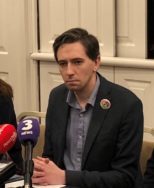
Health Minister Simon Harris has been accused of “colossal double standards” for condemning a plan by a pro-life group to offer sidewalk counselling to women contemplating abortion while staying silent on a pro-choice group’s counselling that provoked an investigation by the DPP.
Minister Harris was reacting yesterday to a report of an American group allegedly planning to offer “sidewalk counselling” to Irish women entering GP clinics and hospitals to have abortions. He described the practices of the group as chilling, manipulative and disrespectful of the democratic process. Yet, he was assailed by the Pro-Life Campaign for equally failing to condemn the manipulative practices of the Irish pro-abortion group that Irish Family Planning Assoociation (IFPA).
PLC spokesperson Maeve O’Hanlon said: “Simon Harris has no credibility talking about standards in pregnancy counselling while refusing to publicly condemn the State funded pro-abortion IFPA [which was] caught on tape coaching women during counselling to illegally import abortion pills to self-administer without medical supervision.
“Given that Simon Harris singled out the IFPA for praise in the Dáil as recently as December 5th, he has a duty to address the issue of IFPA counselling practices that led to a DPP investigation some years ago.
“Everyone should wish for nothing but the highest standards in pregnancy counselling but it is deeply disturbing when the Minister for Health politicises the issue and displays no willingness to stay impartial or fair-minded. It remains a scandal that Minister Harris will not condemn the IFPA for their outrageous counselling practices.”
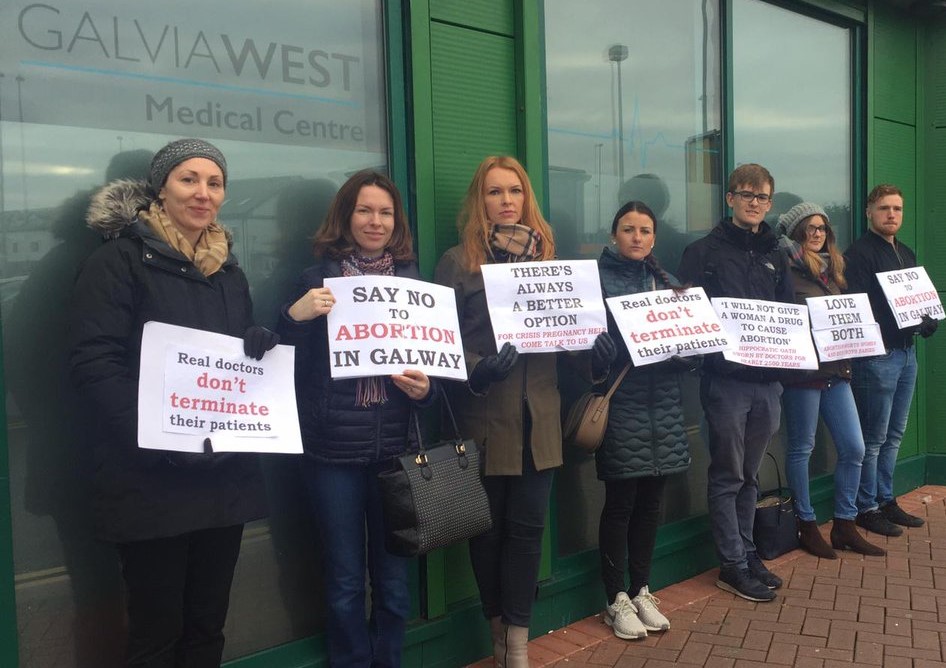
The vague plans of an obscure US pro-life organisation to engage in abortion outreach outside Irish GP clinics and hospitals was the subject of a raft of articles that appeared in the Times, Ireland Edition, on Monday.
According to the newspaper a US organisation, Sidewalk Advocates for Life (SAFL), is training campaigners to wait in hospital car parks to target couples who have received a diagnosis of a fatal foetal abnormality to talk them out of having an abortion.
The article adds that the group advises as an “effective” tactic telling rape victims that having an abortion will not “unrape” them and that a termination can be “rape like”.
Bethany Mistretta, a programme manager for SAFL, is reported as saying that they want to “have every abortion facility or every doctor’s office that provides abortions, have every one of those locations covered with peaceful sidewalk advocates. Any hour of business that they’re open.”
In a later statement to RTÉ News, the group said its materials “were taken out of context” by the newspaper. It added: “We advise every location to act within the confines of their legal rights to offer help through local, reputable pregnancy centres or other medical facilities to fill their healthcare needs. “We have no grand plan to put Sidewalk Advocates in front of every abortion facility in Ireland.”
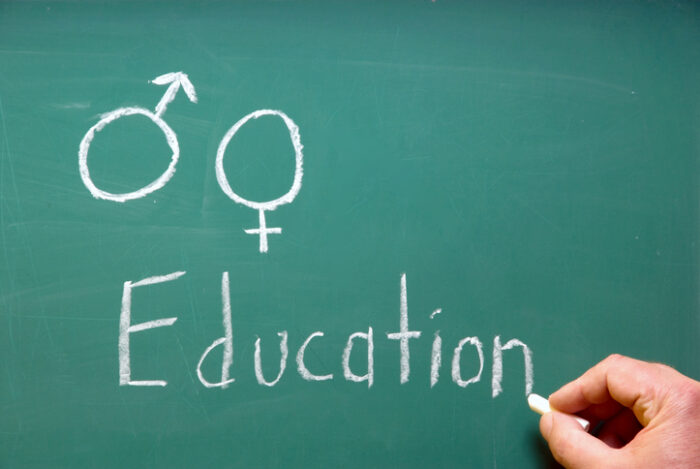
Numerous stories detailing alleged gaps in knowledge of sexual issues by children and young people appeared in Irish media over the weekend as the NCCA’s online consultation on a new RSE course for schools came to an end. The Times, Ireland edition, led the way on Saturday with no fewer than three stories detailing the situations children are finding themselves in due to their lack of awareness of online dangers.
“Teenagers’ sex videos shared by paedophiles”, read one story, while another was headlined, “Sex predators targeting children in explicit group chats on Twitter”. A third story explicitly brought up RSE with the headline, “Alert children aged 2 to online risks, charity urges.”
On the Late Late Show Friday night, a man told his story of being in shock when he was diagnosed in 2012, at the age of 21, with HIV. Robbie Lawlor told Ryan Tubridy, he “didn’t know HIV existed in Ireland” and he didn’t understand how he was getting this diagnosis. He had just finished a four year degree in UCD in zoology and was hoping to travel to Australia, but the diagnosis scuppered those plans. He added that education of young people on the matter today is “non-existent”. He is now an activist for HIV/Aids awareness and had a piece in the journal.ie on Friday on that very subject.
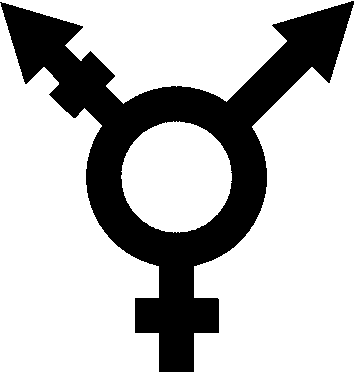
The Cabinet has approved a bill to enable same-sex female couples to register as parents of a baby conceived with the help of a sperm donor. In addition, any couple will also be allowed to replace the word ‘mother’ and father’ on birth certs with ‘parent’.
A memo explaining the new legislation says: “Section 10 provides for the inclusion of details of ‘Parent’ in the required particulars to register a birth or stillbirth. This will facilitate both partners in a same-sex female relationship to have their particulars registered in the register of births. Registration of particulars of “Mother” and “Father” will continue to be available. However, any parent may choose to register a birth as ‘Parent’, if they so wish.”
Under current laws, birth certs only allow for the birth mother to be recorded, but under the changes both women in a same-sex relationship will be able to be recorded as parents. The Bill will also work retroactively to allow people re-register past births.
This change in the law was meant to be effected by the Children and Family Relationships Act of 2015, but a drafting error in one section prevented that part of the legislation from becoming law.
This bill will not extend the same rights to men in same-sex relationships who have children as that crosses over with separate surrogacy laws, the Assisted Human Reproduction Bill 2017, being prepared by the Department of Health.
According to a press release from the Department of Employment Affairs and Social Protection, currently, “particulars of only one parent, the mother, can be included on the birth certificate. Under these new provisions both parents can be recorded as ‘parent’ on the birth certificate.”
It adds that this “will equally apply to non-same sex parents should they so choose.”
The Bill also includes a provision to enable a mother to more easily rebut presumption of paternity of her estranged husband in registering a birth.
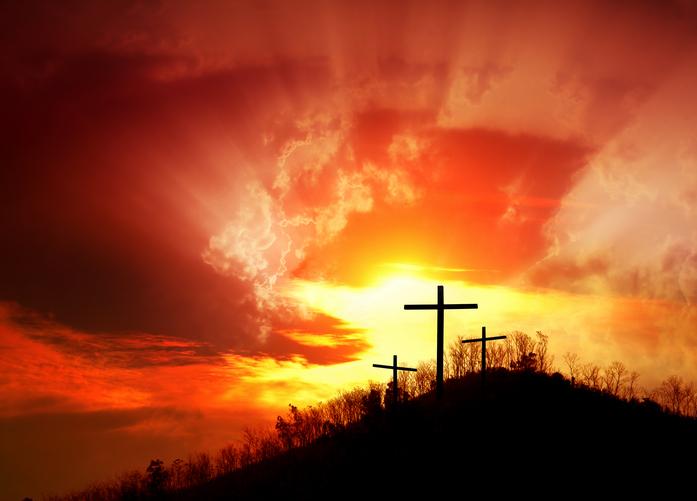
Christians today are persecuted in Iran on a larger scale now more than ever in the past 40 years, according to Article18, a Christian human rights organization focussed on Iran. The claim was made as the 40th anniversary of the Iranian Islamic revolution was feted in Ireland and around the world.
“For 40 years, the Iranian government has harbored an intolerant view towards Christianity,” said Mansour Borji, advocacy director at Article18, a Christian human rights organization focused on Iran.
“Administrations have changed and the methods have varied, but the objective remains the same: to restrict Christians’ influence on all spheres of Iranian life,” he added.
An in-depth report on violations against Iranian Christians in 2018 was jointly released last month by Open Doors, Middle East Concern, Christian Solidarity Worldwide, and Article18. The report stated that according to public records, 29 Christians were held in detention in 2018 for terms of 6 months to 10 years (if formally sentenced at all). Eight were released.
The report emphasized that many more detentions of Christians remained undocumented.
The joint report states that most violations occur against converts from Islam. If arrested, they are pressured to recant; if they don’t, they may be charged with evangelism, illegal house church activity, or endangering national security.
Open Doors lists Iran as No. 9 among the world’s most dangerous places to be a Christian, and stated the Iranian government views converts as a Western attempt to undermine Islam and the Islamic Republic.
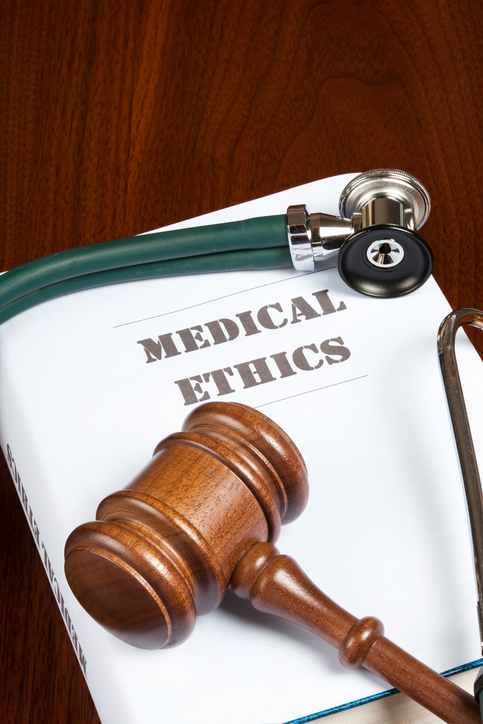
People’s reactions to proposed ethical guidelines that should govern doctors in light of the new abortion regime are being canvassed in an online poll. The Medical Council have set up the survey as the final part of a consultation process. It is open to all the public. One of the biggest proposed changes is to amend the article that prohibits the deliberate killing of a patient, and replace it with a prohibition on the “unlawful” killing of a patient.
Members of the Medico-Legal Alliance said the proposal to equate the term “ethical” with “legal” would “rob the guidelines of any moral force”.
The Life Institute called the proposed changes “deeply disturbing“.
Spokeswoman Niamh Uí Bhriain said: ” It’s very clear that they understand killing is involved, but they want to reflect that some killing – that of innocent, tiny babies – is to be permitted. It’s appalling, but it does reveal the reality of this cruel abortion legislation, and what the government is trying to force doctors to do.”
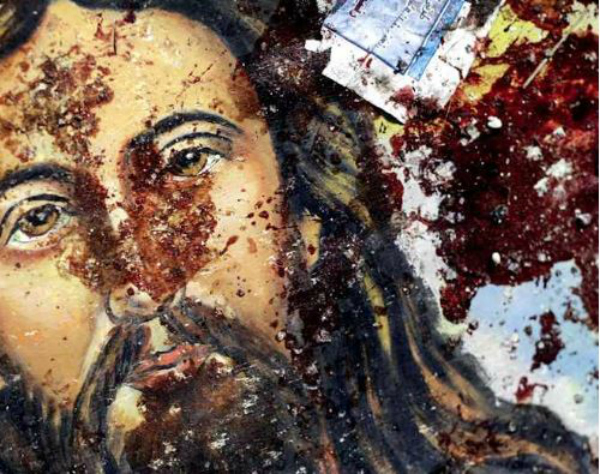
Prosecutor’s have opened an investigation into the desecration of a church in Nîmes, France. The church of Notre-Dame des Enfants was attacked last week and a cross was drawn on a wall with excrement on which pieces of consecrated hosts were stuck. The tabernacle was broken and other consecrated hosts were destroyed.
The Bishop of Nîmes, Robert Wattebled, issued a statement that aid the desecration shocked the whole diocesan community and the church would have to close until a purification could be effected. “The sign of the cross and the Blessed Sacrament have been the subject of serious injurious actions. This act of profanation hurts us all in our deepest convictions. Under these conditions, worship can no longer be celebrated in this building until the profanation has been repaired by a penitential rite whose date is not yet fixed” he said.
He added: “Already, the Carmelites, Cistercians and Poor Clares of the Diocese have agreed to observe a day of fasting and worship, as compensation for acts of vandalism. In their own way, all the Catholic communities will be able to associate themselves with this prayer, in the way that will seem appropriate to them.”
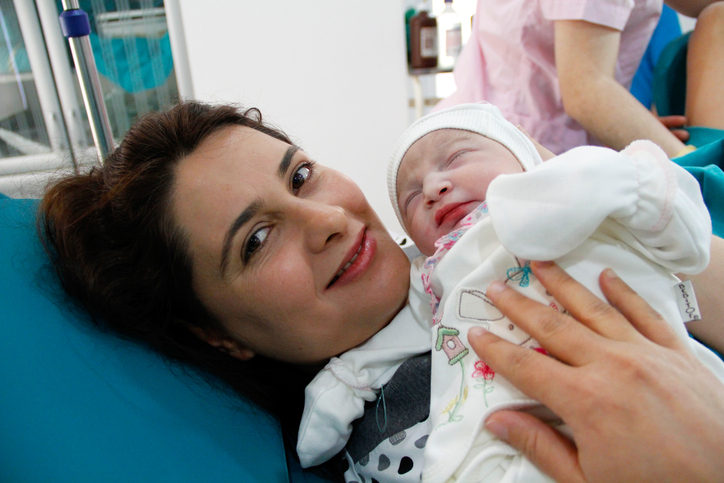
Hungarian women with four children or more will be exempted for life from paying income tax, the prime minister has said, unveiling plans designed to boost the number of babies being born.
As part of the measures, the Government also announced a low-interest loan of €31 500 for women under the age of 40 marrying for the first time. A third of the debt will be forgiven if two children are born to the couple and the entire loan waived after a third child.
A loan program for families with at least two children to help them buy homes will be expanded.
For families struggling with housing, the government will give €3,150 towards a mortgage after the birth of a second child, and €12,580, after a third child, with an additional €3,150 for every subsequent child. Grand-parents could be eligible for “GYED” – a type of paid maternity leave until their grandchildren reach the age of three. The Hungarian nursery system will be expanded with 21,000 new places by 2022.
A subsidy of almost €8,000 will be offered toward the purchase a seven-seat vehicle for families with three or more children. The government also plan to spend an extra €2bn on the country’s healthcare system.
State Secretary for Families Katalin Novak told the BBC the government’s new package is based on the number of babies couples would actually like to have, and then to encourage them with financial help. The aim is to increase the fertility rate from 1.45 to 2.1 by 2030.
Hungary’s population is falling by 32,000 a year as women are having fewer children even than the EU average.
According to Mr Orban, it was also a way of ensuring Hungary’s future without depending on immigration.

In a remarkable advance in foetal medicine, a baby in the UK was removed from its mother’s womb for an operation and then put safely back in afterwards so it could continue with its nine-month gestation.
The child had been diagnosed with spina bifida after a routine 20 week scan and its mother, Bethan Simpson, chose the innovative surgery to repair the problem after refusing an abortion.
Spina bifida should not be not a death sentence, she told reporters, adding that the child has the same potential as every one of us.
In the UK, up to 80% of children diagnosed with spina bifida are aborted.
The case also raises serious jurisprudential issues regarding the status of the unborn child. In some countries, legal rights are not conferred upon the child until it is born: but what then of a child that is taken from its womb and then put back?